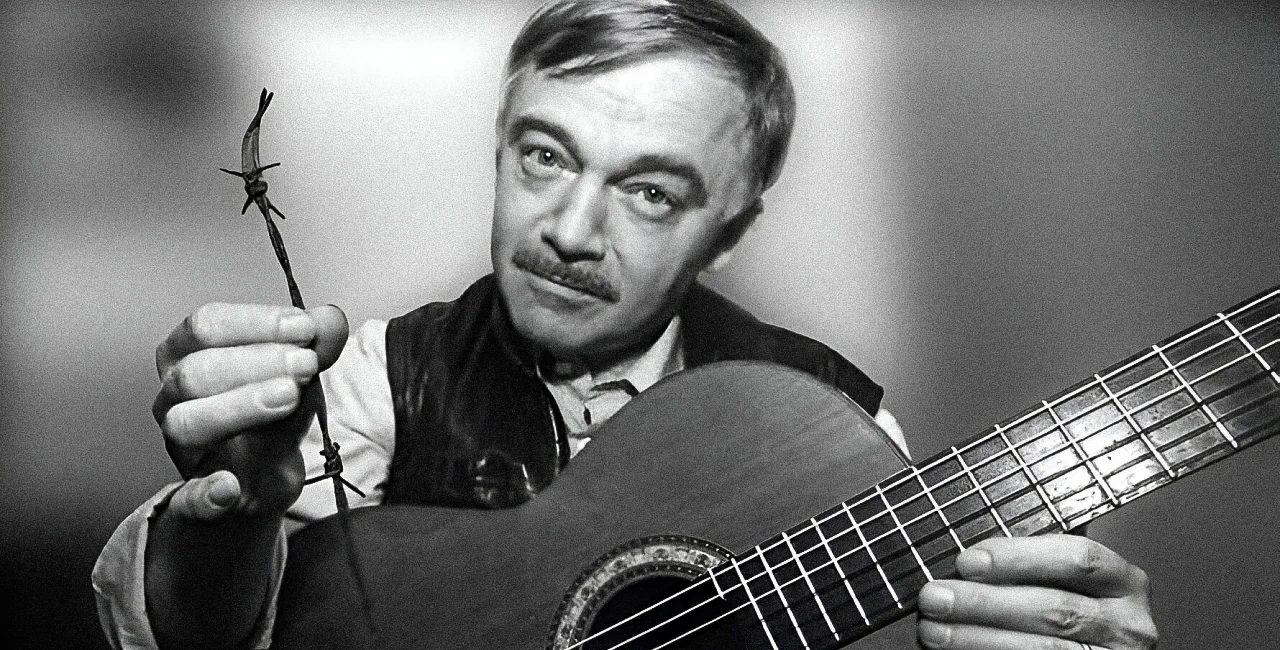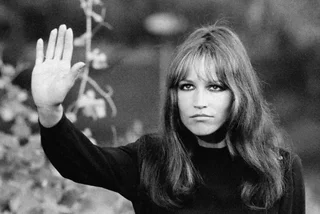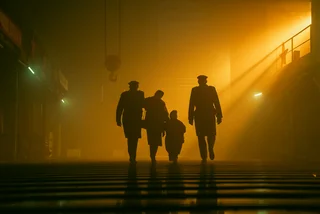The poet laureate of protest songs, Karel Kryl is often compared to Bob Dylan (though with a better singing voice) for drawing attention to the hypocrisy of government regimes.
The song “Bratříčku zavírej vrátka” (Little Brother Close the Door) from his 1969 album, featuring cover photography by Josef Koudelka, was written as an immediate response to the Warsaw Pact invasion and is considered one of the greatest protest songs of all time.
Today, April 12, 2024, on what would have been the singer’s 80th birthday, musical events will take place across Prague to commemorate Kryl's life and legacy.
As part of the Bells of Memory initiative, the St. Nicholas’ bell will ring out for the singer-songwriter, poet, artist, and journalist from 3 p.m. The project is an ongoing collaboration between the City of Prague and The Twentieth Century Memorial Museum. The museum serves as a tribute to the victims of totalitarian regimes and the courageous individuals who opposed them in Prague during the 20th century.
The choice of St. Nicholas' belfry for this commemoration is significant, as historically, its bells served as warning signals during times of peril.
"Today, the peril is the erosion of historical memory and the resurgence of totalitarian ideologies. The ringing of the bells not only pays homage to those who fought against oppression but also serves as a clarion call against the dangers of forgetting the past and succumbing to intolerance and extremism," the project writes on its website.
Evening of songs supported by Musem of Memory
In conjunction with the Bells of Memory project, The Twentieth Century Memorial Museum and the Libri Prohibiti library will organize a commemorative evening on Friday to honor Karel Kryl's enduring legacy.
The event will feature performances of Kryl's songs by singer Vika Olejárová, followed by a debate. The evening promises to be a moving tribute to a remarkable artist whose songs continue to inspire and resonate with worldwide audiences.
In March, the City of Prague approved a CZK 21 million subsidy to fund The Twentieth Century Memorial Museum’s operations in 2024. This subsidy aims to support the museum’s year-round activities, including the opening of a permanent exhibition in Hradčany and fostering local and international cooperation.
Officials emphasized the museum’s significance for Prague and the Czech Republic, citing its role in preserving historical memory. The decision awaits final approval by the municipality's council.
"A museum commemorating above all the totalitarian regimes of the 20th century was missing here for a long time. We were inspired by similar memory institutions in Warsaw, Jerusalem, Berlin or Budapest. The House of Pages will not only provide space for a permanent exhibition but also become a lively place for education, meetings, and discussions about our recent past," said the chairwoman of the board of the museum and senator Hana Kordová Marvanová.
Karel Kryl: A life
Born in Kroměříž on April 12, 1944, Kryl’s life was marked by adversity and artistic fervor. His family’s printing business was destroyed by the communists in 1950, and he later found solace in music and poetry.
Kryl's debut album, “Bratříčka, závírej vratka,” released in March 1969, coincided with the Soviet occupation. Seeking asylum, he left for a music festival in Germany in September 1969. In absentia, he received a 15-month sentence for leaving Czechoslovakia. Exiled, he collaborated with Radio Free Europe, performed concerts, and published records. Returning in 1989, he became an outspoken critic of post-Soviet politics.
Despite his premature death from a heart attack before his 50th birthday, Kryl’s legacy endures as one of the most significant symbols of defiance against the regime of the time.












 Reading time: 3 minutes
Reading time: 3 minutes 





























